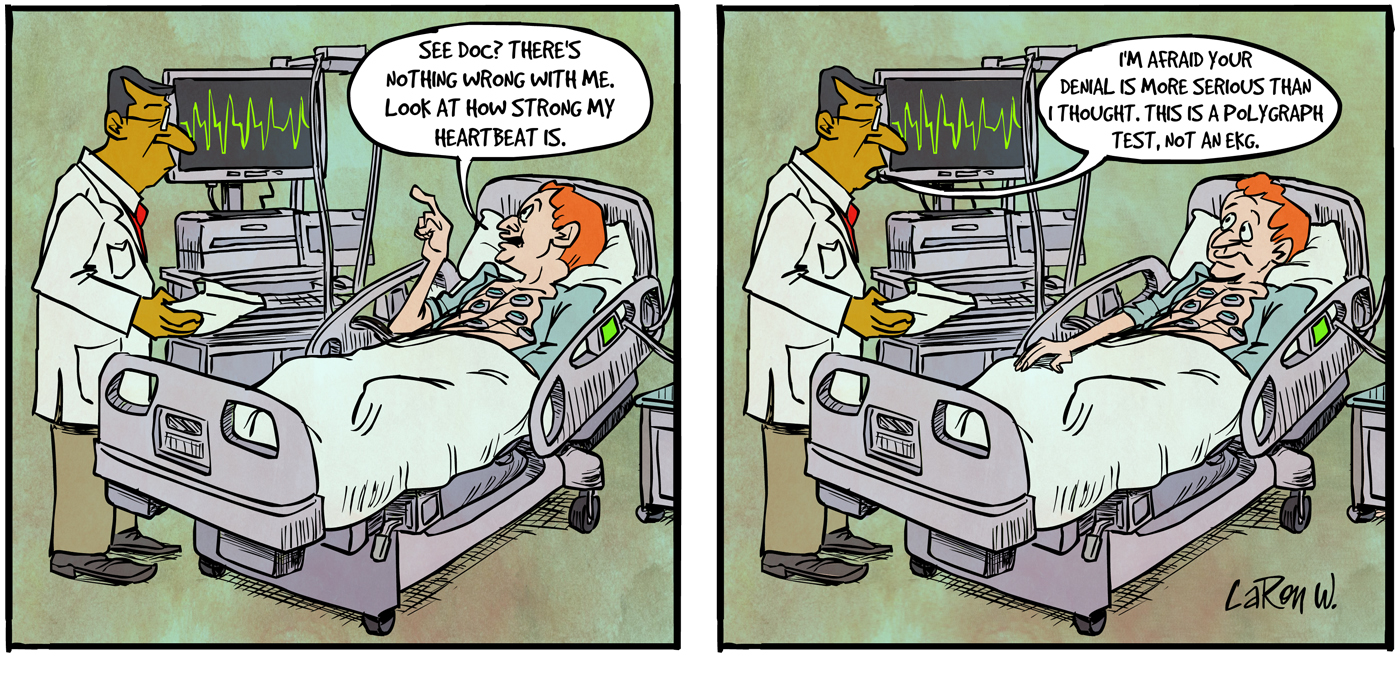I first came to SA in October 2004—the same date I started consulting for my current employer. My work requires me to travel to China. My start in SA kept me sexually sober for the next two years, while travelling to China every five weeks, for about two weeks at a time. As I started this new work cycle, my family was falling apart. It all accelerated when I was separated from my wife and children. Financial problems mounted. In my first year of sobriety, every aspect of my personal life became complicated, tangled, and completely unmanageable.
My work was going fairly well as a consultant, but most of my customers required me to travel to China. I was trying my best to avoid certain people, places, and things to protect my sobriety. I avoided things like alcohol and TV, as well as places such as Chinese entertainment (lust) clubs, where companies entertain their guests. This boundary didn’t come easily. At first, my coworkers insisted that this was part of the job, in order to “connect” with our Chinese partners. But because of my strong desire to stay sober, I was able to stand up for myself and tell my superior that this form of entertainment was not good for me. This led me to develop other forms of bonding with the Chinese businessmen, such as playing badminton. These activities yielded reciprocal respect.
I believed that I had a good spiritual connection, but my self-willed control eventually broke down. After two years of sobriety and working the Steps, I embarked on a series of relapses. I had loosened my boundaries and was resting on my laurels. The real problem was not the environment or its triggers. It was my poor foundation in Step One. I felt that I was a victim of all the circumstances of my life: my wife and children who were gone, my near bankruptcy, and my superhuman efforts at making financial repair by working around the clock on multiple continents. I didn’t accept my disease. Despite some sobriety, I had not truly accepted life on life’s terms. I had been working the program to show my wife how much I loved her, instead of allowing my Higher Power to work in me.
Fortunately for my recovery (and unfortunately for all who have been affected), my personal problems kept increasing. My health started to suffer from overwork and depression. But little by little, I surrendered. First, I surrendered my freelance status and took a full-time job with my major customer. Then I surrendered my obsession for my wife. I stopped trying to make the impossible financial amends. Finally, I surrendered to the fact that I am powerless over my disease, and that my life is unmanageable.
I had to surrender and stop beating myself up with the shame that came from the expression of my disease symptoms. I became willing to do whatever was necessary to protect my newfound sobriety. So I developed a toolbox for maintaining sobriety while in China. My toolbox consists of specific actions that I must take to stay sober:
1) Read and/or listen to program literature. I downloaded program literature and audio files onto my phone and computer. These files include Alcoholics Anonymous, Sexaholics Anonymous, conference audio files, recovery podcasts, and uplifting music. Easy access on my phone provides a healthy escape when disturbances mount. I can access these files almost anywhere without taking out a book. Sometimes, reading for a minute brings me back to the solution while I am sitting in a car with coworkers on the way across town. These files also help me avoid boredom. My disease likes boredom.
2) Maintain a fit spiritual connection. I once heard an AA talk entitled “The Spiritual Life is Not a Theory.” This talk has reminded me that the most important aspect of sobriety is the maintenance of my spiritual connection. I pray as soon as my eyes open in the morning. I pray when I am awake in the middle of the night. I use a recovery Bible. I take advantage of sanctuaries and chapels, wherever I find them, to stop, pray, and meditate. Most airports have chapels.
3) Stay connected to the program. I call my sponsor using Skype on my computer. I call SA members, particularly those on the West Coast of the U.S. Their schedule works best for both of us. I read the literature, even if only a little some days. I work the Steps, sending my work by email, and reading my sponsor’s feedback. Sometimes I travel through Hong Kong, where I can attend an AA meeting. I do service work even while on the road, such as maintaining meeting phone list updates. When I’m back home, I try to attend as many meetings as possible.
4) Participate in daily sobriety renewals. I’ve had the “Daily Sobriety Renewals” format for a long time, but I never worked with it until I was ready to do whatever was necessary to stay sober. As I made the effort to take more actions, I called SAICO and gave my name as a loner while in China. A guy in Taiwan contacted me to make phone calls. I had a friend for whom the renewals had worked, so I suggested this to my new friend in Taiwan. The renewals are like medicine for me. I have to take my pills. I have to receive or make the call at a given time. It’s a commitment to my own recovery, and I am accountable to another person. When I need to do something for my recovery, I bookend with him. I continue to do the renewal even when in the U.S.
5) Exercise. I exercise while I travel. I walk. It’s difficult for me to not be self-conscious walking in the streets of China. As a foreigner, I draw attention from men and women alike. Girls smile at me. I’m learning it’s not about me. It’s not sex they want. They want to speak English. They’re curious. Since there are many, many young smiling girls, at times I cannot look away. They’re everywhere, including in my head.
6) Carry my 24-hour chip. I started carrying my chip during my walks. One day, as I was overwhelmed with embarrassment, I reached for the chip and stared at it as one looks at a pocket watch. It read “24 hours.” It helped. I did it again. I imagined having it mounted on top of a watch. Shortly thereafter, I found a compass in a stationery shop. I taped my chip onto the compass, blotting out the compass window. I now have a real compass for the addict I am. My compass is this program, and it’s my Higher Power.
I remember hearing that unless a compass is properly calibrated, it will lead people astray. My Higher Power is like a well-tuned compass. I’ve also heard that a compass is like the beacon at the end of the runway. A pilot must trust it! So I follow the directions my compass gives me. I avoid getting the needle spinning. I stay on the beam!
7) Attend recovery events. If possible, I plan my activities and travel around recovery events. I will attend a men’s retreat before leaving for my next trip to China. My coworkers insist on being home for their children’s birthdays; I insist on being where I need to be to stay sober. Booking a ticket with a four-day stop at a connecting airport doesn’t involve any additional cost in certain fare classes. I take advantage of these stopovers.
8) Plan activities for my return home. The constant travel in my life puts me on a continuous emotional roller coaster. Travel is exciting. It’s a change, and change is a distraction. Distractions are medicative. Upon arrival, I find myself high. But the high is always followed by a low. When I experience the down, I get very emotional. That’s when danger lurks.
The worst part is coming back home. In addition to the jet lag of travel to China plus the jet lag of the return, I experience the down of coming back home to the wreckage. It takes me about ten days to recover from this emotional roller coaster. Being tired and depressed is a dangerous situation. I’ve found that planning a special activity before I return helps me deal with this roller coaster of emotions. I need to avoid the jigsaw variations of my brain’s neurotransmitters. That is the sense of “Easy does it” for me.
9) Leave the house clean. A clean house is nicer to come home to, plus it makes my life easier when I return.
Today, my problems are still with me. But I don’t let them beat me up. I don’t let my disease beat me up. Today I have a toolbox for dealing with the challenges of travel and for living life on life’s terms. By accepting and surrendering all aspects of my life, I am now willing to do whatever is necessary to protect my sobriety. I understand the concept of “giving yourself to the program.” The SA program of recovery is a way of life, not a self-improvement temporary fix. Lust is still there, but today I trust that I will find serenity if I stay the course.
Anonymous






